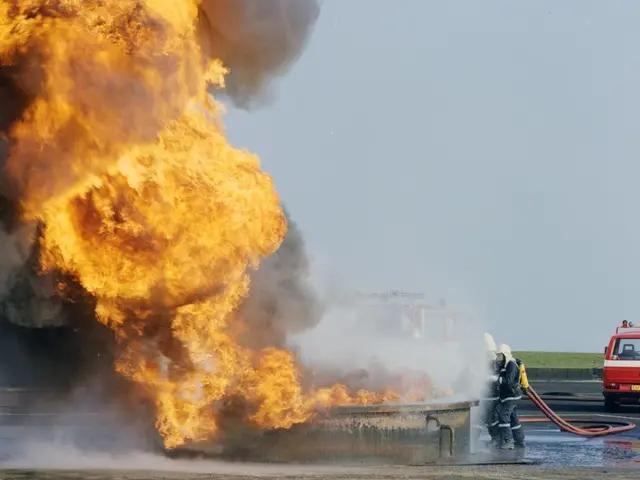Devastating floods in Pakistan have impacted over three million individuals, with approximately 300,000 people still residing in tents.
Flood Crisis in Pakistan Intensifies
Pakistan is currently grappling with a devastating flood situation, with at least three million people affected across the country. The worst-hit province is Punjab, where over 2.9 million people have been affected, and more than 296 deaths have been reported.
The Provincial Disaster Management Authority (PDMA) in Punjab has reported that Panjnad currently carries 194,000 cusecs of water, causing a low-level flood. The floods have affected more than 4,700 villages in Punjab province.
Heavy rains and excess water from Indian dams have contributed to the floods. The monsoon's 11th spell is expected to persist until Sept. 19, with rain expected in Rawalpindi, Murree, Galiyat, and other northern districts. Flash floods could occur in streams around Rawalpindi, Murree, and Galiyat on Sept. 18 and 19.
Rescue operations are ongoing in Punjab and Sindh, coordinated with the Pakistan Army and Navy. Senator Sherry Rehman, a former climate minister, has urged the government to speed up cash assistance for flood victims through the Benazir Income Support Programme (BISP). She has also called for transparency in aid distribution and improvements in camp conditions for flood victims.
Senator Rehman has stated that Pakistan has joined the top five countries most affected by global warming due to climate change. She suggested that Pakistan should appeal to the United Nations for assistance instead of a mini-budget.
The flow of water in most of Punjab's rivers has returned to normal, including the Indus, Jhelum, and Ravi rivers. However, the Chenab river still has medium flooding at Ganda Singh Wala, and low flooding at Sulemanki and Islam headworks.
More than 2,000 relief camps are operational nationwide, and 300,000 people remain in tents due to the floods. No new information about deaths or villages affected was provided in this paragraph.
Senator Rehman chaired a meeting of the Senate Standing Committee on Climate Change, where she emphasised the need for long-term solutions to address the increasing frequency and severity of natural disasters in Pakistan. She called for a comprehensive climate change policy and increased investment in climate-resilient infrastructure.
The floods have highlighted the urgent need for action to address the impacts of climate change in Pakistan. The government and international community must work together to provide immediate relief to those affected and to invest in long-term solutions to build a more resilient future for Pakistan.
Read also:
- Amidst India's escalating climate crisis, transgender individuals continue to persevere
- Contentious Discussion Surrounding the Movie Release of "Planet of the Humans"
- Germany's three-month tenure under Merz's administration feels significantly extended
- Norway set to allocate proceeds from sales of tickets for a soccer match against Israel to Médecins Sans Frontières (MSF)








